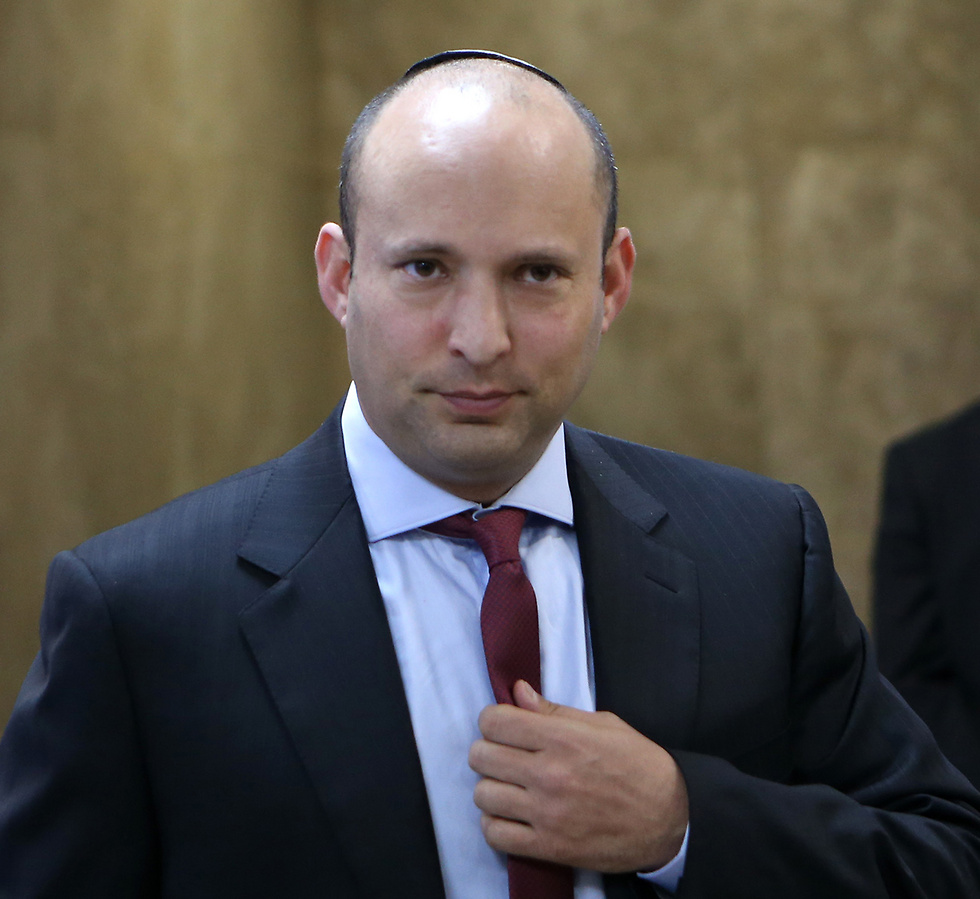Op-ed: Prime Minister Netanyahu is the main official rebuked in the state comptroller’s report on the 2014 Gaza war, yet the report is expected to contain no dismissal recommendations. Nevertheless, it will serve as a framework for a discussion of two important issues: The chronic failures of managing Israel’s wars, and the benefit and damage of such reports to the state’s security.
The state comptroller’s report on Operation Protective Edge is set to be released on Tuesday. The political establishment, just like the army, is bracing itself for the publication. There are those who seek to build themselves on the report, there are those who know it will harm them, and there are those who are preparing for a war over their reputation and their place in history.
It is widely believed that the report contains a lot of criticism, including harsh remarks, and zero dismissal recommendations: The way the report is written, it is not a strategic threat, neither to the government nor to the army commanders; and it won’t provide any remedy or consolation to the bereaved families, who are convinced that their sons died in vain.

Nevertheless, the report is expected to provide a useful framework for the discussion of two important issues. The first issue is the repeated, chronic failures in managing Israel’s wars. The second issue is the benefit and damage of such reports to the state’s security.
The third, final version of the report was distributed on Wednesday to the inspected officials. After the publication, the country will be filled with noisy headlines from the report. It will be a major celebration for those who are fond of neatness and cleanliness.
The workers at the State Comptroller’s Office did what they have been trained to do: They looked into meeting agendas, timetables for implementation, definitions, areas of responsibility, protocols, memos and the like.
They discovered numerous gaps in the paperwork. They did not check the content of the decisions, the essence of the policy, the relationships. It’s not their job, they say. The law forbids them to do so. They are like a doctor who delves into the symptoms, but avoids touching the disease.
The report is signed by State Comptroller Yosef Shapira, but the person carrying it on his shoulders is Brigadier-General (res.) Yossi Beinhorn, a former artillery officer, who served as assistant to IDF Chief of Staff Amnon Lipkin-Shahak, assistant to the defense minister and the defense establishment comptroller.
There is no one in the civil service today who is more acquainted with the inside of the system as well as he is—who leads, who is led, who knows how a decision is passed and how its implementation is delayed. “A government worker,” one the people inspected by him refers to him scornfully.
Beinhorn admires one prime minister—David Ben-Gurion. He wrote his Master’s Degree thesis about him. Ben-Gurion made his most important decisions alone, without consulting anyone, definitely not his senior ministers, without any tidy paperwork. He wouldn’t have met Beinhorn’s demands in his report (“Those were different times,” Beinhorn would respond to this sentence. Those are always different times, I would reply).
Credit comes with responsibility
Prime Minister Benjamin Netanyahu is the official most often rebuked in the report. The main claim against him, according to a previous draft, is that he did not apprise the Ministerial Committee on National Security Affairs (the Security Cabinet), as required by the law.
He was well aware of the situation, and so was then-Defense Minister Moshe Ya’alon, but they did not share it with the ministers.
The cabinet did not hold strategic discussions on Gaza, did not discuss diplomatic alternatives and/or humanitarian gestures which could have possibly made the operation unnecessary.
Moreover, the cabinet did not receive full intelligence information about the expected threat from Gaza and its ministers were not informed that there was insufficient intelligence on the expected threat from Gaza. The prime minister, the defense minister and the cabinet did not set strategic goals for the army. Having no other choice, the army set its own strategic goals.

These are heavy claims. Netanyahu testified before Beinhorn and his team for two hours. He rejected their questions using arguments from the formal area—here and here I spoke about Gaza, here and here I mentioned the tunnels. They were unconvinced.
The truth is different, of course. Netanyahu failed to update the cabinet for two main reasons. The first is that he had no faith in his ministers—he did not trust their wisdom, their motives or their willingness to respect the confidentiality of the information to which they would be made privy. He saw them as enemies rather than as partners.
The second reason is that he had no strategic goal to present to them. He entered Operation Protective Edge with the aim of getting out of it. Yes, entering in order to exit. That is not a strategic goal that can be presented to a group of self-interested, prey-seeking politicians, or to the diligent workers of the State Comptroller’s Office.
The law states that the IDF is subject to the government, and that the cabinet is the government’s representative. In reality, this is no more than wishful thinking. The cabinet is incapable of managing wars—it is too big, too political and too amateurish.
Most of the war events have been run by a “kitchenette,” a forum which is not mentioned by the law. The kitchenettes usually summoned the prime minister, the defense and foreign ministers, the chief of staff, the military intelligence director and the Shin Bet chief. But they were not always tremendously successful either.
Recall, for example, the kitchenette in Operation Cast Lead. Ehud Olmert was prime minister, Ehud Barak was defense minister, Tzipi Livni was foreign minister and Gabi Ashkenazi was chief of staff. They each had their own strategic goals, their own expectations, their own people to hate.Trust was nonexistent.
Netanyahu is demanding all the credit, but is refusing to take responsibility. That has been his problem all along, both during and in between the wars. He is the first to identify and the last to know.
He was the first to identify the tunnels in Gaza, and the last to know that there was no operational solution for them. He was the first to identify the potential of Arnon Milchan, Ronald Lauder, James Packer and Sheldon Adelson, and the last to know where the gifts were coming from.
All the military failures the report is supposed to address—the paucity operational planning, the lack of preparation to take over tunnels, the scant training, the intelligence gaps, and so on and so forth—took place during Netanyahu’s term.
That is what happens when you serve as prime minister for seven consecutive years. For some of these failures, Netanyahu is directly responsible as the person in charge of the Shin Bet. For some, he is indirectly responsible.
The reason for his failures should not be attributed to negligence or laziness or weakness. Rather, the reason is Netanyahu’s reluctance to make decisions. The fate of the tunnels in Gaza is like the fate of the attack that never happened on the Iranian nuclear project. There is no bureaucratic recommendation that can fix this mishap.
Ya’alon did not share Netanyahu’s reluctance to make decisions, but he did share his contempt for the cabinet members. The report reprimands him, but anyone familiar with the reality during that period can sympathize.
Ya’alon was facing Avigdor Lieberman, who repeatedly demanded that Israel occupy Gaza without suggesting how to do it and what to do on the day after. Naftali Bennett waged a campaign to destroy the tunnels. He drove Ya’alon crazy to convince him to do so.
The argument over Gaza’s potential occupation reached the public and consequently convinced Hamas that it was immune, that Israel had no intention of leaving IDF boots on its turf for any protracted period of time. Therefore, it felt secure enough that it had no reason to rush into a ceasefire.
It placed Chief of Staff Benny Gantz in a catch-22: He had to explain to Lieberman why there was no point in occupying Gaza, but had to present it as a concrete threat to Hamas. As a chief of staff, he was compelled to project a fighting spirit. If the cabinet wants us to occupy Gaza, we’ll get ready and occupy.
An inverted ladder
Moshe Dayan was chief of staff during the Suez Crisis in 1956. In a journal he published, he made a cruel comparison between two regiment commanders who acted against the rules: one is a galloping horse, the other is a lazy bull.
Bennett expected the chief of staff to be the horse galloping towards a battle, and he was disappointed. He ignored the dramatic difference between a regiment commander and a chief of staff. A chief of staff’s job is to see the broad picture of the war.
One of the less convincing remarks in the state comptroller’s report has to do with Gantz and the military intelligence director at the time, Aviv Kochavi. According to the draft report, they should have recommended to the defense minister to recommend to the prime minister to hold a cabinet discussion focusing on the tunnels.
That’s an inverted ladder. When the IDF wants something, the IDF achieves it—that’s the explanation I received from the report’s authors. That explanation is not in line with their desire to create order between the army and the government once and for all.

Bennett, the politician expected to emerge victorious from the comptroller’s report, compares the cabinet discussions during the operation to the blindness that struck the system on the eve of the Yom Kippur War. When the cabinet members were presented with information about the offensive tunnel, Bennett didn’t get it. He only got it when he went visited the battlefield, a week before the operation was launched.
At first, he demanded that the IDF attack the tunnels to avenge the murder of the three Jewish teens. Then he reached the conclusion that they were a strategic threat.
The first people to define the tunnels as a strategic threat were Netanyahu and Ya’alon. It was in December 2013, eight months before the operation. Strategy is a resonating word, threat is a strong word too, but what is their practical meaning?
One of the obvious conclusions was an evacuation of the population from communities adjacent to the fence during the fighting. When the idea was raised, Bennett was willing to support it, but Ya’alon and Gantz rejected it out of hand.
Gantz now realizes that he was wrong. Nothing bad would have happened, neither to the communities nor to the national spirit, had they ordered an evacuation for several days, and a platoon of soldiers would have helped the remaining members milk the cows. In fact, that’s what the IDF is now planning for the next conflict, in the north or in the Gaza vicinity.
Bennett complains that the army did not want to attack the tunnels. At first, they said that Hamas would not use them, that it was designating them for a different, much more serious purpose; then they said that if the army entered the tunnels, it would drag Israel into a war in all of Gaza; in the end, they said that there was no point because Hamas would dig all the tunnels again.
The truth is that the IDF was not prepared operationally to attack the tunnels. That’s what the chief of staff should have said to the cabinet members who pressed him to attack—we will attack as you want, although we are not operationally prepared. Beyond that, the estimates presented by the military official were not baseless.
Hamas did not plan to use the tunnels—it was dragged into using them. We lost Hadar Goldin and Oron Shaul at the entrance to a defensive tunnel—a tunnel which was not directed towards Israel and which did not constitute a direct threat; and Hamas dug the tunnels again, improved and more equipped.
Are the tunnels a strategic threat? Yes, the state comptroller’s people reply. Look what happened in Israel following Gilad Shalit’s abduction; look what happened following the kidnapping of Goldin and Shaul’s bodies.
There is no fixed solution for running wars. The key is in the prime minister’s hands. He can surround himself with any forum—subject to the people’s qualifications, to the faith he has in them and to the political constraints—as long as he reports, consults and takes responsibility.
The state comptroller’s people were astonished to hear from ministers, cabinet members, that they have no idea what their authorities are, whether they are a deciding rank, an approving rank or just a consulting rank. The right answer is that they are all of the above—it all depends on the prime minister.
An open battle
Benny Gantz—today a citizen, a full-time businessman and a potential public figure—took the report pretty hard. First of all, he is convinced that Protective Edge was a successful operation, much more successful than the previous ones. Second, he is convinced that the report suffers from a basic misunderstanding of the constraints faced by the chief of staff and of the battles he has to wage against the political system. Third, the report ignores the list of priorities which was dictated to the military system at the time, led by the battle against Iran.
Gantz has two blissful years as a citizen, apart from one issue—dealing with the report. After the report is published, he will have to launch an open battle. Some people like these battle; he will hate every minute of it.

Gadi Eisenkot, Gantz’s deputy who replaced him as chief of staff, comes out from report clean. In 2015, Gantz defined Gaza as a target state, like Lebanon. That move impressed Brigadier-General Beinhorn: It helped organize the division of authorities in the security organizations—what the Shin Bet is responsible for and what the Military Intelligence Directorate is responsible for.
As for the Military Intelligence Directorate, it receives a lot of praise in the report and quite a few remarks. Major-General Kochavi’s place in the report is particularly sensitive, as he is the only one mentioned in it who has been nominated for a promotion. Next month, he will take office as the deputy chief of staff. In a year, when the appointment of the next chief of staff is on the agenda, the report’s remarks will resurface. He will withstand it.
Netanyahu expressed his opinion on the report even before it was completed. The comptroller deals with procedures and I deal with results, he said. His associates added: This is not a serious report and it was written by unprofessional people.
Knesset Member Ofer Shelah (Yesh Atid), who devoted most of his time in the past two years to an investigation of the failures in Operation Protective Edge, reached a different conclusion. “Netanyahu, who said that the tunnels were a strategic threat,” he told me, “did not instruct the army to prepare an operative plan, did not take care of the building of power, did not hold discussions and did not make decisions. The man who pretends to be Mr. Security is talking nonsense about security.”
And my question is: What will happen in the next war event? I suppose that the paperwork will be slightly better, and that some of the ministers will go to the trouble of reading it; the cabinet members will receive slightly more detailed briefs; it will all go by the book. It won’t guarantee results, but there will be less remarks in the next comptroller report.
As reported by Ynetnews
